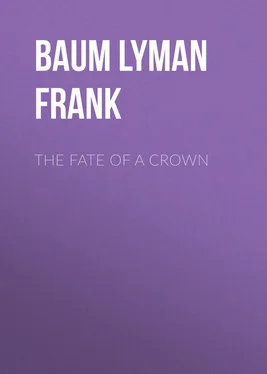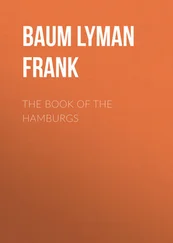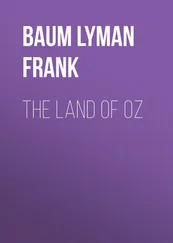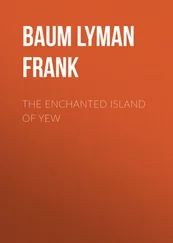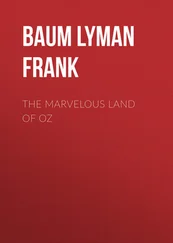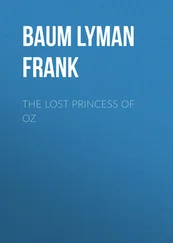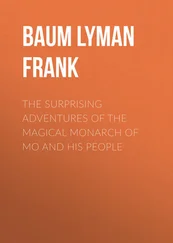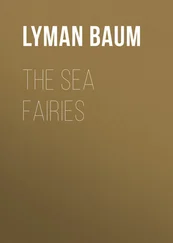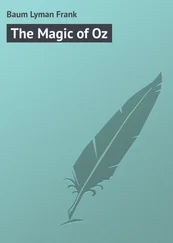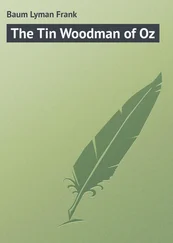Lyman Baum - The Fate of a Crown
Здесь есть возможность читать онлайн «Lyman Baum - The Fate of a Crown» — ознакомительный отрывок электронной книги совершенно бесплатно, а после прочтения отрывка купить полную версию. В некоторых случаях можно слушать аудио, скачать через торрент в формате fb2 и присутствует краткое содержание. Жанр: foreign_antique, foreign_prose, на английском языке. Описание произведения, (предисловие) а так же отзывы посетителей доступны на портале библиотеки ЛибКат.
- Название:The Fate of a Crown
- Автор:
- Жанр:
- Год:неизвестен
- ISBN:нет данных
- Рейтинг книги:4 / 5. Голосов: 1
-
Избранное:Добавить в избранное
- Отзывы:
-
Ваша оценка:
- 80
- 1
- 2
- 3
- 4
- 5
The Fate of a Crown: краткое содержание, описание и аннотация
Предлагаем к чтению аннотацию, описание, краткое содержание или предисловие (зависит от того, что написал сам автор книги «The Fate of a Crown»). Если вы не нашли необходимую информацию о книге — напишите в комментариях, мы постараемся отыскать её.
The Fate of a Crown — читать онлайн ознакомительный отрывок
Ниже представлен текст книги, разбитый по страницам. Система сохранения места последней прочитанной страницы, позволяет с удобством читать онлайн бесплатно книгу «The Fate of a Crown», без необходимости каждый раз заново искать на чём Вы остановились. Поставьте закладку, и сможете в любой момент перейти на страницу, на которой закончили чтение.
Интервал:
Закладка:
Schuyler Stanton
The Fate of a Crown
See, my liege – see through plots and counterplots —
The gain and loss – through glory and disgrace —
* * * * * * still the holy stream
Of human happiness glides on!
CHAPTER I
THE BLUE ENVELOPE
Leaning back in my chair, I smoked my morning cigar and watched Uncle Nelson open his mail. He had an old-fashioned way of doing this: holding the envelope in his left hand, clipping its right edge with his desk shears, and then removing the inclosure and carefully reading it before he returned it to its original envelope. Across one end he would make a memorandum of the contents, after which the letters were placed in a neat pile.
As I watched him methodically working, Uncle Nelson raised a large blue envelope, clipped its end, and read the inclosure with an appearance of unusual interest. Then, instead of adding it to the letters before him, he laid it aside; and a few minutes later reverted to it again, giving the letter a second careful perusal. Deeply musing, for a time he sat motionless in his chair. Then, arousing himself from his deep abstraction, he cast a fleeting glance in my direction and composedly resumed his task.
I knew Uncle Nelson’s habits so well that this affair of the blue envelope told me plainly the communication was of unusual importance. Yet the old gentleman calmly continued his work until every letter the mail contained was laid in a pile before him and fully docketed. With the last he suddenly swung around in his chair and faced me.
“Robert,” said he, “how would you like to go to Brazil?”
Lacking a ready answer to this blunt question I simply stared at him.
“De Pintra has written me,” he continued – “do you know of Dom Miguel de Pintra?” I shook my head. “He is one of the oldest customers of the house. His patronage assisted us in getting established. We are under deep obligations to de Pintra.”
“I do not remember seeing his name upon the books,” I said, thoughtfully.
“No; before you came into the firm he had retired from business – for he is a wealthy man. But I believe this retirement has been bad for him. His energetic nature would not allow him to remain idle, and he has of late substituted politics for business.”
“That is not so bad,” I remarked, lightly. “Some people make a business of politics, and often it proves a fairly successful one.”
My uncle nodded.
“Here in New Orleans, yes,” he acknowledged; “but things are vastly different in Brazil. I am sorry to say that Dom Miguel is a leader of the revolutionists.”
“Ah,” said I, impressed by his grave tone. And I added: “I have supposed that Dom Pedro is secure upon his throne, and personally beloved by his subjects.”
“He is doubtless secure enough,” returned Uncle Nelson, dryly, “but, although much respected by his people, there is, I believe, serious opposition to an imperial form of government. Rebellions have been numerous during his reign. Indeed, these people of Brazil seem rapidly becoming republicans in principle, and it is to establish a republican form of government that my friend de Pintra has placed himself at the head of a conspiracy.”
“Good for de Pintra!” I cried, heartily.
“No, no; it is bad,” he rejoined, with a frown. “There is always danger in opposing established monarchies, and in this case the Emperor of Brazil has the countenance of both Europe and America.”
As I ventured no reply to this he paused, and again regarded me earnestly.
“I believe you are the very person, Robert, I should send de Pintra. He wishes me to secure for him a secretary whom he may trust implicitly. At present, he writes me, he is surrounded by the emperor’s spies. Even the members of his own household may be induced to betray him. Indeed, I imagine my old friend in a very hot-bed of intrigue and danger. Yet he believes he could trust an American who has no partiality for monarchies and no inducement to sympathize with any party but his own. Will you go, Robert?”
The question, abrupt though it was, did not startle me. Those accustomed to meet Nelson Harcliffe’s moods must think quickly. Still, I hesitated.
“Can you spare me, Uncle?”
“Not very well,” he admitted. “You have relieved me of many of the tedious details of business since you came home from college. But, for de Pintra’s sake, I am not only willing you should go, but I ask you, as a personal favor, to hasten to Rio and serve my friend faithfully, protecting him, so far as you may be able, from the dangers he is facing. You will find him a charming fellow – a noble man, indeed – and he needs just such a loyal assistant as I believe you will prove. Will you go, Robert?”
Uncle Nelson’s sudden proposal gave me a thrill of eager interest best explained by that fascinating word “danger.” Five minutes before I would have smiled at the suggestion that I visit a foreign country on so quixotic an errand; but the situation was, after all, as simple as it was sudden in development, and my uncle’s earnest voice and eyes emphasized his request in no uncertain manner. Would I go? Would I, a young man on the threshold of life, with pulses readily responding to the suggestion of excitement and adventure, leave my humdrum existence in a mercantile establishment to mingle in the intrigues of a nation striving to cast off the shackles of a monarchy and become free and independent? My answer was assured.
Nevertheless, we Harcliffes are chary of exhibiting emotion. Any eagerness on my part would, I felt, have seriously displeased my reserved and deliberate uncle. Therefore I occupied several minutes in staring thoughtfully through the open window before I finally swung around in my chair and answered:
“Yes, Uncle, I will go.”
“Thank you,” said he, a flush of pleasure spreading over his fine old face. Then he turned again to the letter in the blue envelope. “The Castina sails on Wednesday, I see, and Dom Miguel wishes his new secretary to go on her. Therefore you must interview Captain Lertine at once, and arrange for passage.”
“Very well, sir.”
I took my hat, returned my uncle’s grave bow, and left the office.
CHAPTER II
VALCOUR
The Castina was a Brazilian trading-ship frequently employed by the firm of Harcliffe Brothers to transport merchandise from New Orleans to Rio de Janiero. I had formed a slight acquaintance with the master, Pedro Lertine, and was not surprised when he placed his own state-room at my disposal; for although the vessel usually carried passengers, the cabin accommodations were none of the best.
The Captain asked no questions concerning my voyage, contenting himself with the simple statement that he had often carried my father with him in the Castina in former years, and was now pleased to welcome the son aboard. He exhibited rare deference toward my uncle, Nelson Harcliffe, as the head of our firm, when the old gentleman came to the head of the levee to bid me good by; this Uncle Nelson did by means of a gentle pressure of my hand. I am told the Harcliffes are always remarkable for their reserve, and certainly the head of our house was an adept at repressing his emotions. Neither he nor my father, who had been his associate in founding the successful mercantile establishment, had ever cared to make any intimate friends; and for this reason the warmth of friendship evinced by Uncle Nelson in sending me on this peculiar mission to Dom Miguel de Pintra had caused me no little astonishment.
After his simple handshake my uncle walked back to his office, and I immediately boarded the Castina to look after the placing of my trunks. Before I had fairly settled myself in my cozy state-room we were under way and steaming down the river toward the open sea.
Читать дальшеИнтервал:
Закладка:
Похожие книги на «The Fate of a Crown»
Представляем Вашему вниманию похожие книги на «The Fate of a Crown» списком для выбора. Мы отобрали схожую по названию и смыслу литературу в надежде предоставить читателям больше вариантов отыскать новые, интересные, ещё непрочитанные произведения.
Обсуждение, отзывы о книге «The Fate of a Crown» и просто собственные мнения читателей. Оставьте ваши комментарии, напишите, что Вы думаете о произведении, его смысле или главных героях. Укажите что конкретно понравилось, а что нет, и почему Вы так считаете.
